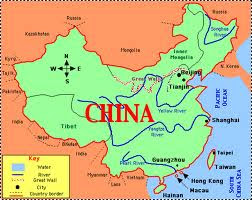Water Woes of Central Asia

Water Woes of Central Asia By Dr Arvind Kumar In a recently released report on the situation in the Amu Darya Basin in Central Asia, the United Nations Environmental Program (UNEP) has criticized Central Asian governments for failing to agree on ways to cooperate on water management. The report warns that unless they can find a way to coordinate their effort, the future does not look bright for them. The Amu Darya -- known in the past as the Oxus -- has for most of its history been praised for its richness and fertility. The upper reaches of the Amu Darya form part of Afghanistan's northern border with Tajikistan. Elsewhere it marks part of the boundary between Uzbekistan and Turkmenistan. Originating from various water sources in Kyrgyzstan, Tajikistan, and Afghanistan, the Amu Darya flows northwest to its mouth on the southern shore of the Aral Sea. At 2,540 kilometers in length, the Amu Darya is the longest river in Central Asia. When the Soviets controlled the regio















